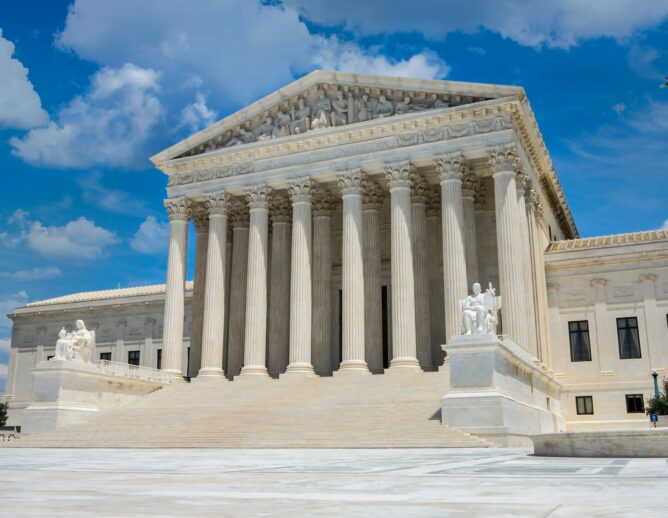
Good news? Walmart may be next in line to help police the dietary supplement industry.
Let me explain. Yesterday, the NY state attorney general’s office accused four national retail chains – GNC, Target, Walgreens and Walmart – of selling fraudulent and mislabeled dietary supplements based on findings that four out of five of the products did not contain any of the herbs mentioned on the label.
The New York Times reported that the “investigation came as a welcome surprise to health experts who have long complained about the quality and safety of dietary supplements.” Though certainly welcome, was this discovery really a surprise?
For years, investigation after investigation has revealed an industry riddled with corruption and deception. Consider a very small, random sampling of the Food and Drug Administration’s (FDA) archives of recall announcements for dietary supplements manufactured or sold in New York [note, FDA’s publicly available archives only go back as far as 2004].
2004: Kingsway Trading Inc. of Brooklyn, NY, is recalling the dietary herbal supplements DOUBLE DEERS FORMULA brand EXPELLIN EXTRACT (CONCENTRATED) and CARDIOFLEX as they contain Aristolochic Acid, and present a serious health risk to consumers. Aristolochic Acid is a potent carcinogen and nephrotoxin found in certain plants and botanicals. Products that contain Aristolochic Acid have been associated with several occurrences of kidney failure.
2008: Balanced Health Products, Inc. is voluntarily recalling STARCAPS DIET SYSTEM DIETARY SUPPLEMENT, Lot 12/2011 – 84810, sold in 30 capsule plastic bottles. The recall is effective immediately and is being undertaken because this lot of STARCAPS contains an undeclared drug ingredient- Bumetanide – a diuretic available by prescription only. Bumetanide is also not listed on the product label as an ingredient in this product.
2013: U.S. Food and Drug Administration is warning consumers that they should not use or purchase Healthy Life Chemistry By Purity First B-50, marketed as a vitamin B dietary supplement. A preliminary FDA laboratory analysis indicated that the product contains two potentially harmful anabolic steroids—methasterone, a controlled substance, and dimethazine. These ingredients are not listed in the label and should not be in a dietary supplement.
This time however, the attorney general went after the actual retail outlets, adding another layer of accountability. From a legal perspective, this is an interesting twist. Traditionally, the dietary supplement industry has been the “wild west” of product regulation for FDA. Over twenty years ago, regulators decided that dietary supplements ought to be regulated like food, not drugs, and so the process for oversight and safety control is largely left to the manufacturers [for a discussion of industry’s history, listen to this episode of the Diane Rehm show]. Additionally, dietary supplement manufacturers can make health claims and place new products on the market so long as the manufacturer has “substantiation that the claim is truthful and not misleading.” However, these claims are not evaluated by FDA, so the agency insists that a product’s label contain the following statement prominently displayed, and in boldface type:
“This statement has not been evaluated by the Food and Drug Administration. This product is not intended to diagnose, treat, cure or prevent any disease.”
Besides the extraordinarily limited oversight of FDA, the Federal Trade Commission may hold bad dietary supplement actors accountable for unsubstantiated claims, but only after an actual harm has been committed. To learn more, see here.
The presumed impact of the NY Attorney General’s current investigation will be to add a layer of accountability to retailers. Of course, any supplier, and that includes retail stores selling private label brands, should be accountable for the integrity of the products they sell. However, in light of yet another egregious harm against the consumer, we need to ask some larger questions. Is placing the role of monitoring consumer safety with the supplier, such as Walmart, the best move to serve the public health? Or is it time for FDA to step up its game in protecting the consumer?
The best way to ensure that consumers can safely purchase products such as dietary supplements off of retailers’ shelves is for Congress to imbue FDA with real authority to properly regulate these products and the necessary funds to make it work. FDA’s regulation of the food industry is already headed in this direction. In response to increasing numbers of food-based health scandals causing all sorts of injuries to consumers, Congress passed the Food Safety Modernization Act changing FDA’s ideological approach to food safety from reactionary to a focus on injury prevention. The same ideological and regulatory overhaul must happen in the dietary supplement industry, a natural course of action given that the two industries have always been treated alike. Until then, as one nationally recognized expert observed, the consumers best bet is to simply Skip the Supplements.




